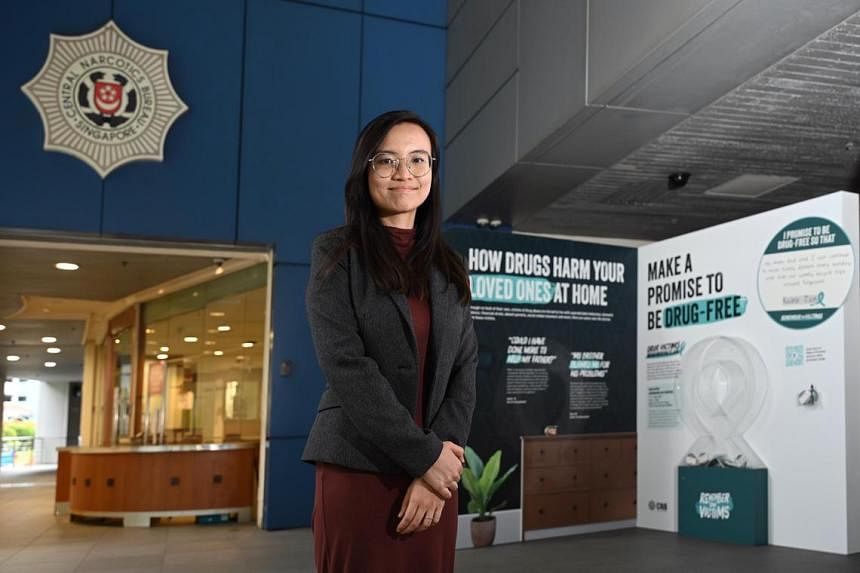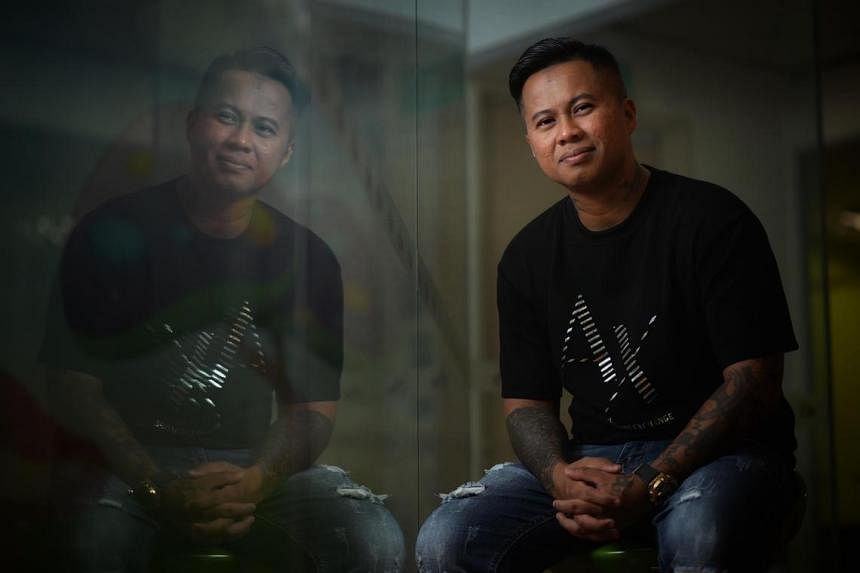Secondary 3 student felt like zombie when fornightly drug fix became daily one


SINGAPORE — At first, the 15-year-old took methamphetamine once every two weeks after being introduced to it by friends outside of school.
The teen then took it weekly, and later, daily. The Secondary 3 student, whose studies suffered, became lethargic, felt like a zombie and lost weight.
The youth's familial relationships were also strained. What saved the teen was getting caught by the authorities and being sent to a children's home.
Helga Foo, a social worker who works with Trybe, a social service agency that specialises in helping youth facing adversities, now counsels the teen via an after-care programme.
She said the teen has broken off ties with bad company, and has very clear goals — to focus on education and pursue a career in hospitality.
But Foo is worried to see more young people taking drugs.
She said: "These drugs will affect their day-to-day functioning. And as they are at an age where their brain is developing, drugs can have a long-term effect on them.
"But it is not surprising they are taking drugs at a younger age, because social media gives them exposure to drugs and liberal attitudes."
In July, Minister of State for Home Affairs and National Development Muhammad Faishal Ibrahim said there have been more cases of youth engaging in drug trafficking and abuse, and they were getting younger.
He said that in the first four months of 2024, 16 drug offenders who were below the age of 16 were arrested, compared with 24 such arrests in the whole of 2023.
Figures from the Central Narcotics Bureau (CNB) annual statistics report showed that there was a near 17 per cent increase in young drug abusers arrested in 2023 compared with the figure in 2022.
Drug abusers below 30 form around 27 per cent of total drug abusers in Singapore.
The most recent survey by the National Council Against Drug Abuse (NCADA) in 2023 revealed that 18 per cent of 3,000 youth aged 13 to 29 said they knew someone who had taken drugs. This was up from 10.6 per cent in 2019.
A CNB spokesman said the youngest person arrested for drug consumption between 2019 and 2023 was an 11-year-old Singaporean in 2020.
In July, a 14-year-old girl suspected of drug abuse was arrested in an islandwide operation.
Gwen Ho, a caseworker with the Youth Enhanced Supervision scheme, where low-risk youth offenders are placed under the care of social service agencies, said some youth below the age of 16 take drugs out of curiosity.
She added that some have friends who know older youth with access to drugs, while others meet strangers online who introduce them to drugs.

Ho recalls helping a 15-year-old girl through her rehabilitation programme in 2020 after she was arrested by CNB for using methamphetamine.
The girl had used drugs to cope with relationship issues and felt distant from her family.
When the teen’s parents found out about her drug abuse, she felt misunderstood by them. She ran away from home, but her siblings found her.
Ho said the girl’s parents learnt to talk to her, not just focusing on her drug use but on her overall well-being.
A study by the Institute of Mental Health in 2023 found that four in 10 drug abusers in Singapore started abusing drugs before they were 18 years old.
Teo Kah Shun, a psychologist at the CNB Psychology Unit, said one of the reasons why youth below the age of 21 take drugs is to cope with problems.
They may also take drugs because they think it can improve their performance in mobile games, sports or their studies, or as a way to socialise.
And what she is observing worries her.

She said: "Compared with 10 years ago, youth today have access to social media platforms and many online sources. So, it's hard to control where they get their information."
Teo added that she has cases where youth tell her they do in-depth research on drugs, giving them the misconception that the drugs are not harmful.
She said that online forums and shows such as Breaking Bad and Narcos have influenced youth to think that drug consumption is normal.
In a Forum letter in The Straits Times on Aug 7, NCADA council member Firdaus Daud replied to a letter by 19-year-old Lee Qin Yuan on how the young can learn to help others with drug problems.
Firdaus said popular culture, social media and global trends have resulted in a growing misconception that drug use is normal and acceptable.
This has led to more young people trying drugs due to curiosity, peer influence, and underestimating the dangers of drug addiction until it is too late.

This is compounded by the increasing momentum of international drug liberalisation and decriminalisation, which have made it challenging for Singapore to maintain its strict drug laws and policies.
Aside from education and outreach programmes to warn young people of the harms, and reintegration initiatives to help them recover from drug use, the authorities are looking to police the online space.
In February, Minister of State for Home Affairs Sun Xueling said in Parliament that the Ministry of Home Affairs is working with online platforms to get them to comply with directions under the Online Criminal Harms Act within 24 hours.
If online platforms do not remove content allegedly used for criminal activities, including drug sales, within a stipulated timeline after being told by the authorities to do so, they would have committed an offence.
Former drug addict Mohamed Ashyik, 40, tried glue sniffing at 11, used methamphetamine at 13, then got arrested at 16.
He went in and out of prison for various drug-related offences, and spent a total of 15 years behind bars.
Things changed nine years ago, after his eldest stepdaughter, who was 25 then, visited him at a drug rehabilitation centre.
He said: "She cried and said, 'You broke our hearts, even after I tried to accept you as my father.' Ever since then, I wanted to put a stop to all these (drug) activities."
Ashyik, who is now a safety officer, said: "If you keep on blaming your friends and surroundings for getting into drugs, you'll never change."
This article was first published in The Straits Times. Permission required for reproduction.